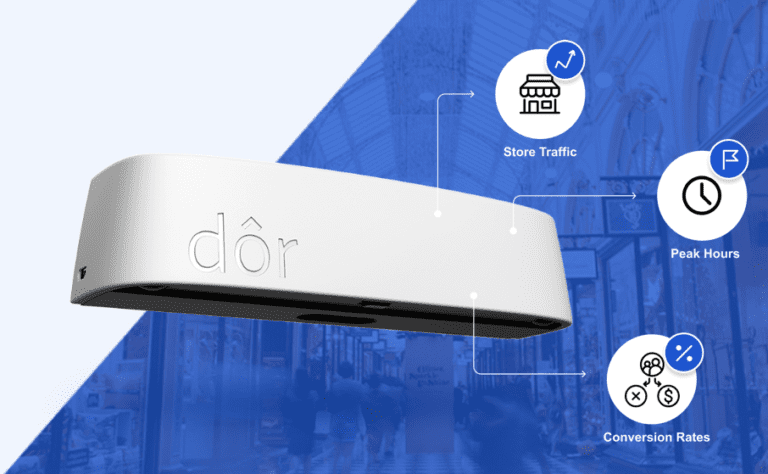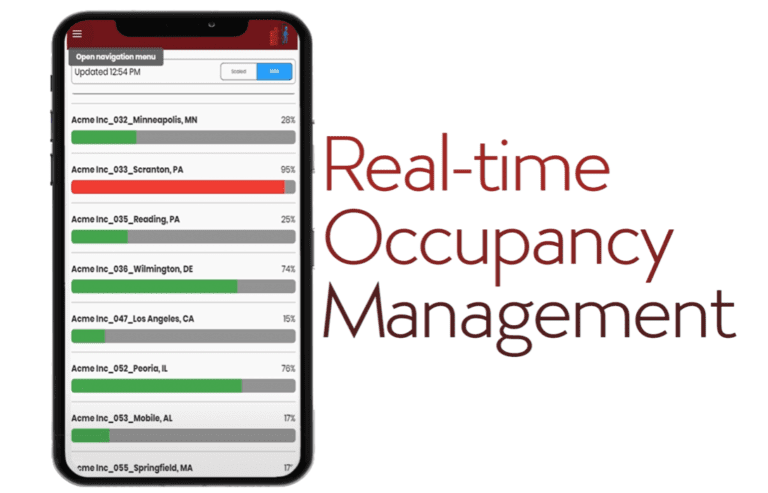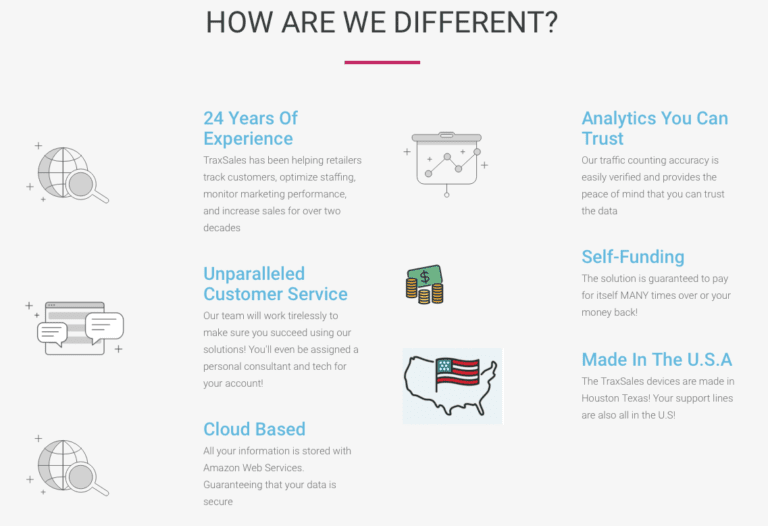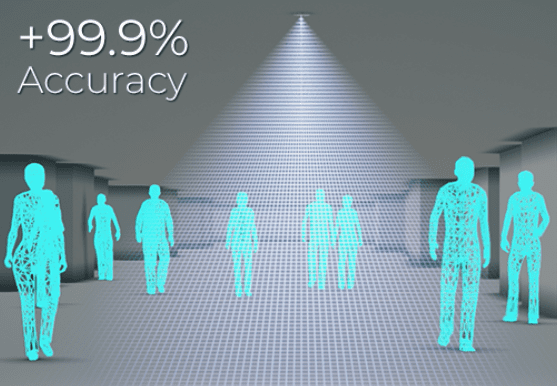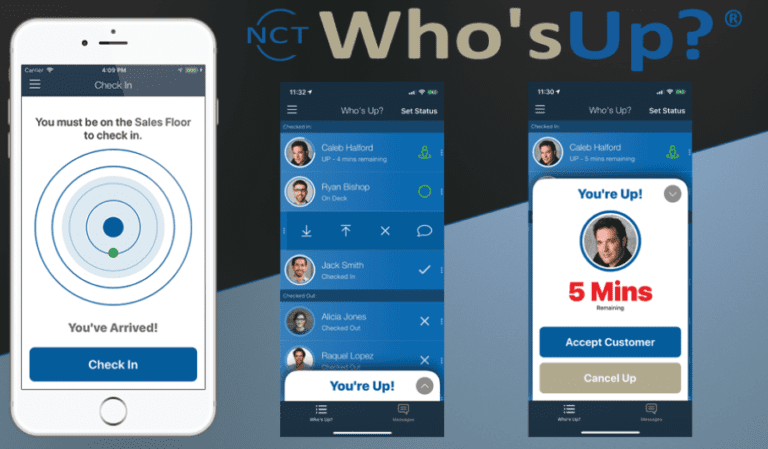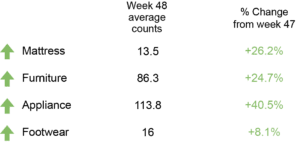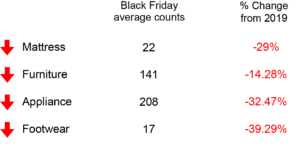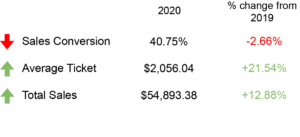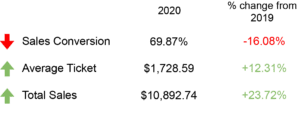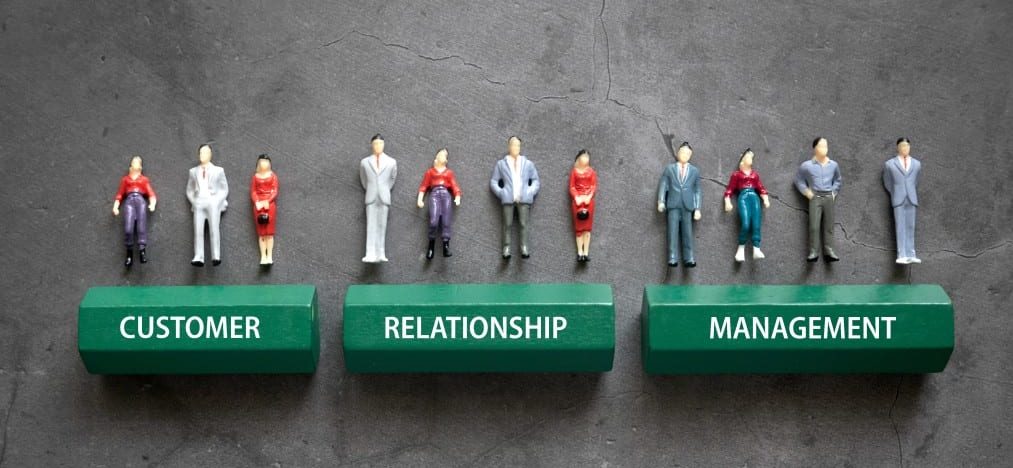Dos Marcos (00:03):
So we have a lot of friends on the show. Some of the friends are new. Some of the friends are old. We’ve got a new friend. His name is Luis Lopez. And Luis, you got to tell us your door count story, because this was super cool. By the way. First of all, Luis Lopez, what a cool name? You like L squared or you like a news reporter live in the st. Luis. You know, Luis could like walk up, roll up on a scene and go, Hey man, it’s L L right here. Do you do that? Luis?
Dos Marcos (00:32):
I get that a lot. Actually, when I’m walking at the mall, people walk up to me and ask me for my autograph. And I’m like, no, no, no, I’m not that low pants. I’m the other Lopez.
Dos Marcos(00:42):
Oh, Mario Lopez.
Dos Marcos (00:44):
No. Are you related to Jennifer Lopez? Are you anything as a made to do with George Lopez? I’m like, no, I’m the other Lopez that has to do with Lopez furniture.
Dos Marcos (00:55):
We all like traveling the same circle though. We’re all buddies in some way. So before I rudely interrupted you’ll you are going to tell us about your story. So go for it.
Luis (01:06):
Yeah. I joined Nationwide a while back and, you know, everything that they have, uh, poured into me, all the knowledge and the, training that we’ve had, we’ve gone through have told me that numbers are important in your business. Therefore, you know, I started a way to track my customers on paper trade, but I had Kennesaw. I was constantly fighting with my salesman because I knew that they were missing people when we had people come in and they were missing people, you know, on their papers. I will like constantly tease them. Hey, what, how did that first person hear about us? And they didn’t know because they didn’t ask or they couldn’t remember. So when I went to a Nationwide, um, training or, uh, one of the classes last time in Houston, I was sitting down in one of the classrooms and they were talking about Doorcounts.
Luis (02:03):
So Doorcounts was like a light moment to me right off the spot. I was able to see it right away. I’m like, this is awesome because I’m going to be able to have pictures of my customers away, walk through my door every day with the time yeah. Hour. And I wasn’t going to assign those, those people into my sales man. And I’m going to pretty much make that person accountable to give me all the information that, that customer now walking through the door hat, how did they hear about us, you know, through online radio TV, and I’m going to be able to lock it out in, into our system. And at the end of the day, I can see what the traffic was for that day. I’m sold. So when, uh, when the, when the class, when that, when, when, uh, when, when I took the class and I was sitting down, uh, one instructor mentioned that he was going to have a raffle for a camera system.
Luis (03:01):
And I knew I had to win that in my mind. I was like, I need this. You know, even if I don’t win it, I’m gonna buy it because it’s amazing the way that things got talked back to me with numbers and to my surprise, I won it. I was so happy. I can not sleep that night because I did. I go over to the minute already guys, because why? Because I knew that it was going to transform a business. I knew that the minute I would install that camera in my store, I was going to be able to see why people were coming in. Where were they coming from? I was going to make better decisions on my investment or marketing, marketing tools. I was able, I’m gonna, I was gonna make that person accountable to show the importance of, uh, to our salesmen of every person that comes through the door and how much it cost us to bring that person in all of that stuff ties in together. And then, you know, the CRM to follow up with the customers and after they come into the store, it has elevated ourselves. Incredibly. It’s been a couple of months that we’ve had it in our stores, I can already see the results.
Dos Marcos (04:14):
So Luis, to the point, uh, you, you wanted to win the door count system magically. You did when the door count system. And did I hear this correctly? When we spoke earlier that you actually went back and bought another system for other stores, because you want it to take that same success and repeat it?
Luis (04:36):
That’s correct. Yes. I had to buy it on my other locations because I don’t want to miss out on the information that I cannot go back and acquire. You’ll want to see your numbers and reports as soon as possible. Every customer that comes through the door, it’s accounted to an investment and you want to be able to see what your investments are, where your investments should be. There’s no reason to not want to do that. And it’s, it’s a, it’s such a title like a, like a, it gives us all sorts of reports. It’s not just tracking it. It’s following up with the CRM system. It’s being able to see the average ticket per customer, it’s is being able to track. I live out of state so I can, I’m able to see the sales for that day. And it’s, uh, the, uh, when I run the month reports, I’m able to see, you know, where most of our customers came from, which I was actually surprised to realize that we have an 80% return in referral customer base, which amazed me. That gives me a lot of assurance into my business because we’re doing something right, 80% of the customers that account in back or furnace.
Luis (05:53):
I was just going to say what a great piece of information, whenever you’re trying to make advertising and marketing decisions. And you realize you’re kind of looking at Pareto principle, 80 20 rule, 80% of our customers are referrals or returns. Where should I invest my time, energy and money and resources. It gives you a clear picture of that. Otherwise. So many people go down the black hole of advertising and channels that may not be fruitful,
Dos Marcos (06:22):
Right? Yeah. And it could be possibly, especially now with online marketing, that is not a small investment. You have to get your ROI return on investment, and you have to know where you put your money and allocate it. Cause there’s so many options to put it in. But the system, the software with Doorcounts is going to talk back to you and say, you will make your money in this area. You will make your money in this area. And it’s so easy to see. It’s so easy to understand. I mean, I have no college and business other than just real life experience. And as I go in and learn, and I’m able to see all these reports that are used to, to understand, and it gives me a, a broad information to make decisions.
Dos Marcos (07:12):
So what were you doing before Luis? I mean, before you had that data, right. In terms of, you know, analyzing your business, like, you know, what were you doing before? Cause you didn’t have the numbers. Now you have the numbers. Like, how were you just guessing at that like best guests scenario for you? Is that kind of how you’re handling it prior to having door counts?
Luis (07:35):
Yes. Yeah. You, you pretty much make the investments based on traditional marketing tools. Like you put money on the radio, that feeling, yeah. You, you ask people and then you see a person that came through your radio station investment and it makes you feel good, but you really don’t know. You know, you don’t, you don’t write it down anywhere. Cause you you’re, we’re busy. We’re not going to have the time to go and ride through pores. Our by hand. They’re not going to be accurate. Even before that, I didn’t believe my reports.
Dos Marcos (08:07):
So Luis, could you see this as a way for you to actually leverage your marketing spend? Because I assume that a major cost to your business is what you spend on marketing and advertising, right? So you spend a lot of money on that stuff. I mean, couldn’t you take the data that you’re getting back and go to the radio guy and say, Hey man, you keep telling me that advertising on your station is going to drive customers. Here’s my last 50. And nobody’s talking about the spots I run on your shows. I think don’t you think you could use that data to help negotiate better prices potentially on some of the media properties you’re doing business with?
Luis (08:50):
I was definitely, yeah. You use those tools to be able to, you know, bring pressure in a way to your, uh, advertising, uh, uh, tools or advertising. Uh, what do you call it? Vendors, vendors. And it’s it. You, you have data and, and they, they cannot, nobody can go against your data. It’s just true. And a lot of times, you know, vendors tend to tell you, they will bring the stars and the moon to you, but at the end of the day, it’s not working, but you don’t have a way to fight back. And it’s not, it’s not accurate information or you’re not connecting all that information. So yeah, I think that that’s a really good source to be able to get at your vendors straight.
Dos Marcos (09:36):
Let me talk about implementing Doorcounts into a team that formerly wasn’t using any type of tracking system. I know anytime you roll out new technology change systems within a sales operation, it can be clunky. It can be scary. There’s new accountability. All of a sudden the kimono was open. What was the reaction from your team? What was the rollout and implementation like? And then what’s it like today?
Luis (10:04):
Sure. Yeah, the, uh, the system was actually very easy to adapt into our culture. We had, um, you know, an hour or two hours of training sessions and everybody got it at first. My mom, which is my sales super star start here at the store, she’s in her late fifties. And she got freaked out. When I told her mom, we’re not going to use paper anymore to write down our traffic reports. And she’s like, no way I want my paper. I want to do it in the same way. I’ve been doing it for two, three years. A mom check this out. This has got to be so easy, just logging into the portal. And this is where you’re going to do with every customer you get. And this is where we got, it’s got show us at the end of the month and she is actually on it.
Luis (10:49):
She was able to get it right away and, and, uh, you know, it’s really easy to be able to adapt it to our team. And it’s, it becomes sort of a part of the culture. Like everybody’s excited about getting gain gaps, gathering all the information as possible from their customers to put it on Doorcounts. It became part of our process every day. It became part of our conversations in the break room. Uh, you know, how are you guys doing with your, uh, uh, your, your, what do you call it? The CRM product or the CRM. So, uh, your prospects, how are you doing with your prospect? That’s how you following up? How many prospects do you have? It’s it became a fun activity, you know, a fun thing to do in a way
Dos Marcos (11:39):
I like that Doorcounts so easy. Even mom can use it and loves it.
Luis (11:46):
There you go.
Dos Marcos (11:47):
I liked it. He took mom on she’s like, I want paper. And he’s like, Oh no, we were going big mom. Um, so
Dos Marcos (11:54):
Louise, it’s funny because you mentioned the people on your sales floor and they go, Oh, no, man, I’m closing like, uh, 80% of the people that come in and you’re like 80%, no way. Right. And they’re like, Oh man, the doorbell, I don’t know if you had a chiming system, but they’re always like, Oh no, man. We had like three ups guys that day and a postman and those weren’t ops. So have you found that the, um, closing ratio for your sales force is more accurate and uh, there are less like excuses or rocks to hide behind for the retail sales professionals in your business? Not that they would do that, but
Luis (12:38):
Oh yeah. I mean, I can see the pictures of every person that came through and I can actually have a conversation about that customer in particular. And I love doing that. I love coming up to a sales associate and say, hi, uh, you know, you, you guys, you helped this guy out. Where, how do you hear about us? You know, why was he looking for, uh, did he purchase or not? And all of that conversation, when you have a face in front of your computer, it cannot deny that customer came in. Sometimes I sales people, I was, I’m a salesman myself. And I’ve, I I’ve been for a long time. You kind of want to make that person that walk in, you know, ask you to show them stuff and you didn’t have what they let you, they were looking for. So they walk out and you kind of forget about that person. You kind of put it under the rug and not worry about him, but it’s a way to actually think about why do you do wrong or why didn’t you not do to be able to get that customer’s attention. And when there’s a face attached to the question, it’s a lot easier to put that pressure into our man and, and, uh, you know, just be, be able to make them better as people. And it’s just a salesman.
Dos Marcos (13:52):
Yeah. Overall, what have you seen, have you seen a percentage sales increase? Can you share anything?
Luis (13:59):
Sure. Yeah, we have, um, I mean we, with, since, with this year with, with the parenting and the, the, you know, the coronavirus and all that stuff going on, I’ve seen a 60% growth in our sales for the entire year. I started using this product probably three, four months ago. And I know that the last few months I’ve been twisting the numbers a lot more because every customer that walks in through our door at this moment of time is essential. We need to get the business and we have to, you know, not play around. So just like I was saying, the pressure behind it, with the questions that come, you know, aware of, why did this person do? There’s a picture of this customer coming in. It’s not a ghost customer. It’s an actual customer that has increased our sales and also the CRM, uh, uh, product or two of that that makes us follow up within a few days and getting all that information from customers. We even have a way to, we ask the customer if they want to be entering into our email campaigns and text campaigns. And that has been helping a lot because we collect their information. And then we have, we told to tell them that we’re going to add them into our system. So we follow up with the campaigns as well.
Dos Marcos (15:18):
If you could say something to other retailers out there who are considering Doorcounts, or trying to figure out how to better track who’s coming in their store and what the sales team is doing with them, what advice would you give to other retailers? Or what would you say to them?
Luis (15:33):
Sure. The app, sometimes the overhead, it scares us. We don’t want something that we feel that is not important in our business. So we don’t really do the investment. We just try to keep it the old way with the paper, or, you know, just continue doing traditional stuff. But if you want praise results, you have to do Tracy investments in the end. It’s a, it’s a must traffic reports are needed to be able to give you a lot of information in regard to how you’re going to allocate your marketing money. How are you going to do your training even with your salesmen? So I would say, you know, just go ahead and get the Doorcounts product. You will not regret it. It will make your life a lot easier. It will give you a lot of information that you will not, that does not have up to this point. And I will not wait any longer because today July 16, 2020 will be gone. And all the data that you could have captured today will not be able to come back. And the longer you do this, the better it gets. I can’t wait for next year. Cause I’m going to be able to see my numbers from last year. You know,
Dos Marcos (16:52):
That’s a cool way to look at it, actually. Um, it seems to me like, this is the kind of thing that you have it now. And, uh, my wife, I remember you guys remember when TiVo came out, right? So my wife, my wife wanted a TiVo, the di the digital video recorder. I hadn’t been out before. So she really wanted one of these things. So I bought one for her birthday. So I said to her, how do you like TiVo? This was her answer. Um, I can’t imagine my life without it. Okay. That’s a big like Holy cow, like five star rating. Right. I’m pretty sure if you asked her, what do you think about being married to Mark? She probably wouldn’t say that. Like, I can’t imagine my life without him. I don’t even think I would get that kind of endorsement. So I bring up that story to ask you this. Do you kind of look now back in the rear view mirror and say to yourself, how in the hell did
Luis (17:50):
I run my business without door counts? Does it kind of have that impact on you? Most definitely. Actually. I actually think about it a lot. I’m like what? What’s my numbers. When I first started this business eight, seven years ago, you know, I want to see what my traffic was like on the month of January, December, and then why, what was my second year? What was my third year? What was my fourth year? I waited until my seventh year to be able to capture this information. And I really regret it because I cannot go back in time and get those numbers. And, you know, it’s a way to motivate yourself as an entrepreneur, as a, you know, a business owner too, because you’re going to see an increase in your, in your traffic reports. You’re going to see an increase in your sales and your average ticket per customer.
Dos Marcos (18:37):
All of that stuff can be helpful for you to keep moving forward and just know that you’re moving forward because those reports are going to talk back at you. Sometimes as leaders, we don’t really, uh, we can get down and say, am I doing something right? I’m doing something wrong. But you know, I feel that when you’re bringing customers in your store and you see that your average ticket is coming up or your sales revenue you’d tie all that in. And that gives you, uh, it talks to you and say, you’re doing something right. So, well, thanks so much Luis, appreciate you breaking it down for us. And if you’re considering, uh, something similar, and if you don’t want to, what I call ostrich your way through the world, with your head in the sand head over to doorcounts.com, you can schedule a demo. Tell him dos Marco sent you, tell him Luis Lopez sent you LL. Thanks, buddy. All right. Thank you guys.


